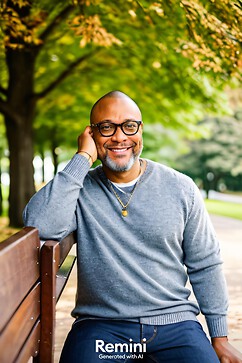HIV Saved My Life
At the beginning of the HIV/AIDS epidemic, I was just a young boy—no more than 10 years old. I remember sneaking peeks at People magazine, staring at the images associated with what they called a “gay cancer.” I recall hushed conversations happening behind closed doors, where kids like me weren’t allowed to listen.
Close to home
Fast forward to 1992—my older brother came home from college with full-blown AIDS and the early signs of AIDS-related dementia. Though we were both gay, his illness didn’t bring us closer. Instead, I felt his anger and envy—as if he resented that I wasn’t the one who was sick. And in truth, I carried my own guilt for that very reason. He was the golden child—an A student, a college graduate. Meanwhile, I was barely managing, unsure of my path at 21.
He passed away during Thanksgiving of 1993.
Doctors let me down
A year later, I moved to Atlanta, Georgia. Before leaving, I had a job with medical benefits, so I decided to get a full check-up, knowing I might not have access to health insurance for a while. I asked the doctor for an HIV test. This was 1994, and maybe some doctors still weren’t accustomed to treating HIV, or perhaps they weren’t comfortable discussing it. Instead of ordering the test, he asked me a few questions:
“Do you do drugs?”
Me: “No.”
“Do you drink heavily?”
Me: “No.”
“Do you eat healthy and stay active?”
Me: “Yes.”
Then he simply said, “You don’t need an HIV test.” He never asked about my sexual practices. Instead, he encouraged safe sex and sent me on my way.
Believing doctors were always knowledgeable and trustworthy, I didn’t question it. I wouldn’t ask for another HIV test until 1996, two years later, when I was living in Atlanta.
The truth reveals itself
And when I finally learned I was positive, I kept it to myself. I didn’t tell a soul. I didn’t write about it—not even in my journal. I wouldn’t acknowledge my diagnosis at all until I returned home to the Bay Area in 2000.
What finally pushed me to seek treatment was the death of a close friend. He had HIV/AIDS but refused to take the medication available at the time, believing instead in holistic treatments. He passed away at just 32 years old.
I believe HIV saved my life because, for so many years, I thought I wouldn’t live long. That fear pushed me to be as healthy as possible, to truly live rather than merely exist. And here I am—53 years old, still here, still thriving. Undetectable. In good health. Back in college, preparing for a second career to carry me through retirement.
Being HIV-positive changed my perspective on life. It gave me a strength I might never have found otherwise. I mourn the lives lost, but I refuse to let their memory fade. I keep pushing forward, carrying their legacy with me.

Join the conversation